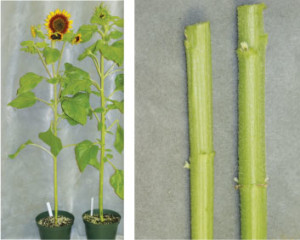Silicates are a form of silicon. Silicon is very prevalent in nature, as it is the 2nd most abundant material on the planet. The most common silicate additive for plants is potassium silicate. There is typically always small amounts of silicon in soils, however, if you are running hydroponically, then a silicate additive is a must. Additionally, silicates tend to be harder to flush than any other nutrient. Therefore, it is recommended that soil users stop adding it the last month of bloom, and hydroponic users stop adding it the last 2 weeks of bloom.
Potassium silicate is a monosilicic acid, and it is formed when mineral silicon is broken down and dissolved in water. Within 24 hours of applying a silicate solution to your plants feeding schedule, it will systemically be in the plant. What this means is that it will be taken up by the roots and transported throughout the plant’s structure.
What silicates do for your plants is to help build them and make them stronger. Your plants have cell walls that are formed as they grow. If you think of those cells as bricks, then the silicates are the cement that hold those bricks in place, making them that much more resilient to attacks from more extreme weather conditions, water shortages, or insects and pathogens.
Very few, if any, base nutrients have silicates added to them, due to the fact that they are high in PH. Therefore, you need to purchase and add them separately from your normal regimen. So, come on in, and we’ll be happy to provide you a clearer idea of what silicate additive would be best suited for your grow. Remember… We Grow better!

